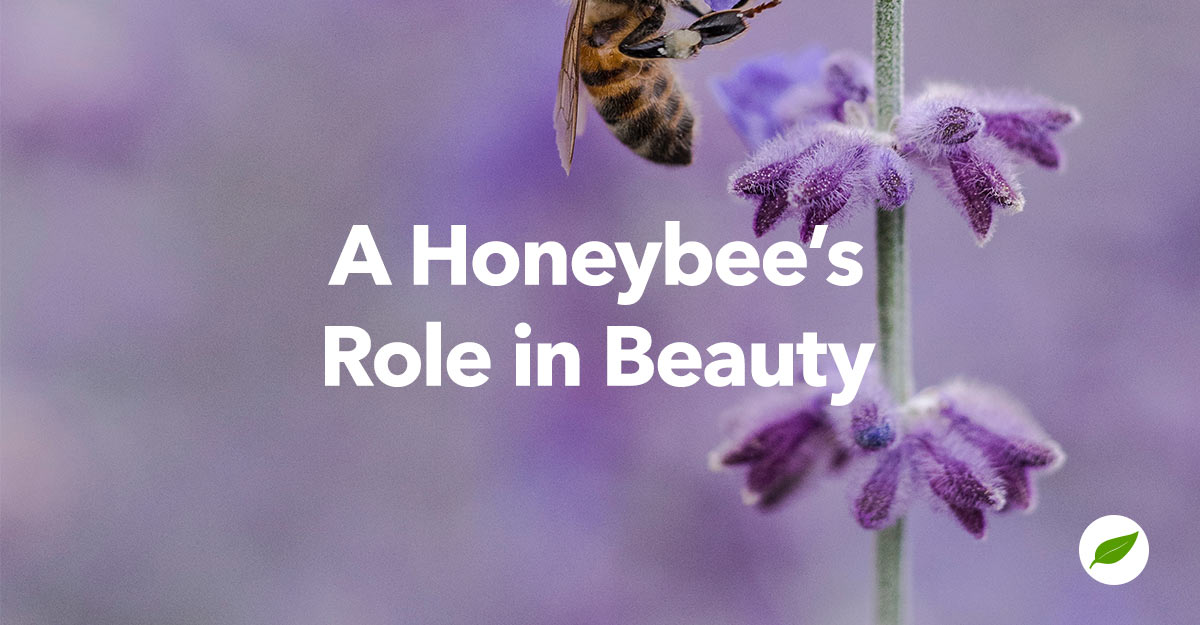
Learn why you should stock your beauty bag with natural products made with help by honeybees!
For years, environmental experts have been concerned about the health of honeybees and hives across the country. Apiculturists are still unclear as to what is harming honey bees, but they continue to advocate for the protection of honey bee habitats. The importance of this insect to our health and the balance of our planet’s ecosystems cannot be overstated, as we rely on the humble honeybee for many of the natural products that keep us healthy and well nourished.
Honey bees produce much more than honey alone; you can also stock your medicine cabinet and your makeup bag with bee products as well. Keep reading to learn more about the role of honeybees in beauty and how you can add more health and honey into your makeup and skin care routines.
Understanding Bee Products in Beauty Care
Honey
Honey is the go-to bee product found in almost every pantry worldwide. Although all honey products are not created equal. Many have been overly processed, so when it comes to buying honey for your health, go for the rawest, most local form available. When it comes to health and beauty products, multiple studies have proven that pure honey may be a powerful agent in beauty and wellness. Recent research states that “due to its antioxidant properties bee’s honey acts as a rejuvenator, and an important ingredient in beauty culture as a moisturizer and a conditioner.”
Add more honey into your hydration game by checking out the all natural line of skin care products and moisturizers by Naked Bee.
Propolis
You may see the word propolis pop up in the ingredient list of your favorite natural beauty product and find yourself confused. Propolis is actually a helpful product gathered by beekeepers from the hive of honeybees. It is the compound that helps hold the hive together. Propolis has been used for centuries in natural medicine, and studies are now confirming the potential of this superfood to cure wounds as well as boost skin health and clarity.
To experience the benefits of bee propolis for yourself, try Authentic Africa’s Secret Multipurpose Skin Cream from Alaffia.
Beeswax
Beeswax is another bee product with a long history of effective use in human health and beauty products. Commonly found in lip balms and natural lipsticks, beeswax provides the perfect texture for even lip application with the benefits of natural moisture. You may also find beeswax in skin creams, concealers, and mascaras, making it one of the most versatile gifts the honeybee has given the natural beauty world.
Want longer lashes without a side of harmful chemicals? Show your eyes some natural love with this Holistic Mascara from Real Purity.
Royal Jelly
Royal jelly goes by many names, including bee saliva and honey bee milk, but what is it? Royal jelly is a watery, milky substance produced by worker bees to nourish bee larvae and nourish the queen of the hive. Studies have shown that royal jelly has a host of benefits in natural skincare “based on its anti-allergy, anti-inflammation, antimicrobial properties, and promotive action on collagen synthesis.” Royal jelly can also be taken in supplement form, as it is rich in vitamins, bioflavonoids, amino acids, essential fatty acids, enzymes/coenzymes, and other essential nutrients.
Infuse your beauty routine with a bit of royal jelly by trying this Ginseng Collagen Boost Mask from 100% Pure.
How do you use honey in your health and beauty routine? Share your secrets and favorite tips with us in the comments section below!
